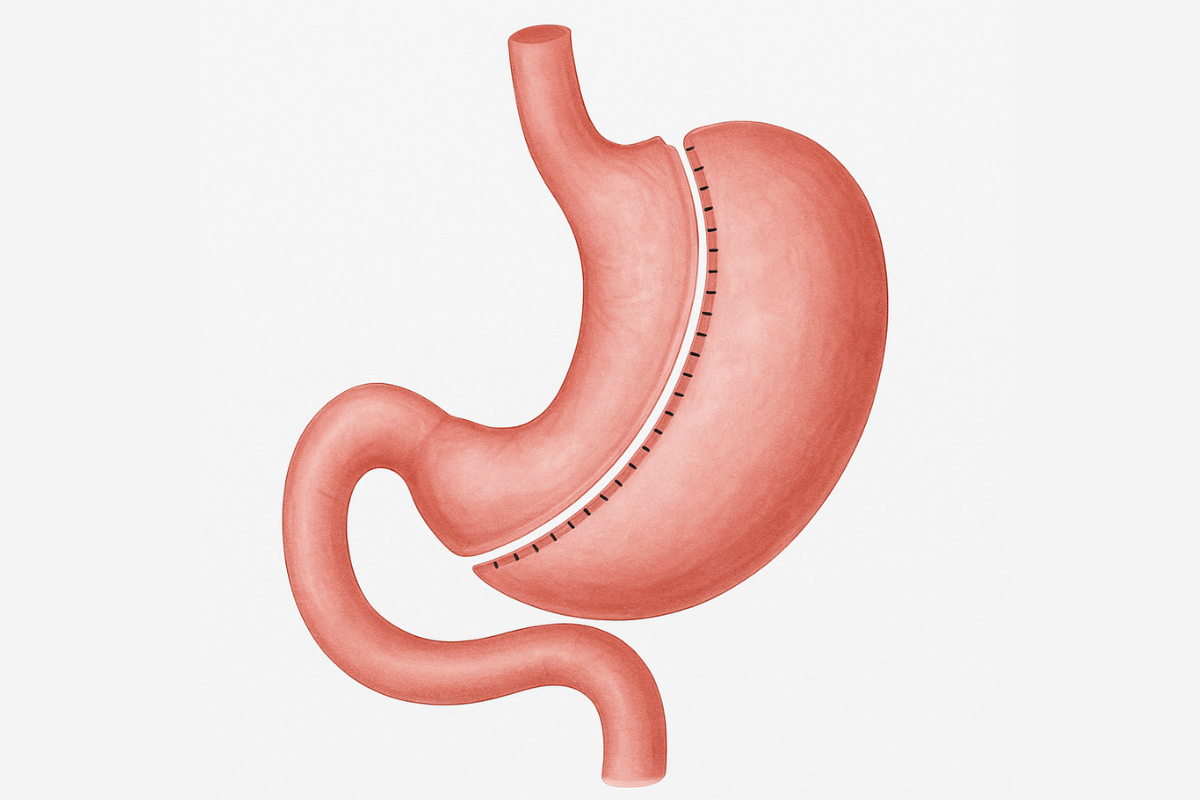Gastric sleeve revision can be a vital solution for individuals whose initial weight loss journey didn’t go as planned. While gastric sleeve surgery (also known as sleeve gastrectomy) is one of the most commonly performed bariatric procedures worldwide, some patients may face challenges such as insufficient weight loss, weight regain, or post-operative complications.
In these situations, a gastric sleeve revision—a form of revisional bariatric surgery—may be required to restore or improve the results of the original procedure.
In this guide, we’ll explore what gastric sleeve revision is, why someone might need it, the types of revision procedures available, and the benefits and risks involved.
What Is a Gastric Sleeve Revision?
A gastric sleeve revision refers to a surgical procedure performed to correct or improve the results of a previous sleeve gastrectomy. This is a form of revisional bariatric surgery designed for patients who either did not achieve their desired weight loss goals or who are experiencing complications, such as acid reflux or a stretched stomach.
Revisional procedures can include modifying the existing sleeve, converting it to a different bariatric surgery type (such as gastric bypass), or adding a restrictive element like a gastric band.
Why Is a Gastric Sleeve Revision Needed?
There are several reasons why a person might consider a gastric sleeve revision:
- Weight Regain: One of the most common reasons. Over time, the stomach may stretch, leading to increased food intake.
- Insufficient Weight Loss: Some patients may not lose as much weight as expected due to metabolic factors or poor dietary compliance.
- Gastroesophageal Reflux Disease (GERD): Post-operative acid reflux or heartburn that worsens after sleeve gastrectomy may require conversion to another surgery like gastric bypass.
- Complications or Technical Failures: Leaks, strictures, or other surgical issues might require correction.
- Desire for Further Weight Loss: Patients who had success but seek additional weight reduction.
Types of Gastric Sleeve Revision Procedures
Revisional bariatric surgery isn’t one-size-fits-all. The appropriate revision depends on your health history, the reason for revision, and the condition of your current stomach structure. Common revision options include:
1. Re-sleeve Gastrectomy
Involves trimming the stomach again to reduce its size back to its original form. Suitable if the stomach has stretched over time.
2. Conversion to Gastric Bypass (Roux-en-Y)
Often recommended for patients with severe GERD or those who did not lose enough weight. The new configuration helps with malabsorption and better appetite control.
3. Conversion to Duodenal Switch
Duodenal switch procedure is typically used for patients with significant weight regain and requires both restriction and malabsorption mechanisms.
4. Gastric Band over Sleeve
A less common option where a gastric band is placed over the existing sleeve for added restriction.
Benefits of Gastric Sleeve Revision
- Improved Weight Loss: For those who experienced limited results or regained weight, revision can restart the weight loss process.
- Better Management of Comorbidities: Conditions like type 2 diabetes, sleep apnea, and hypertension may improve further.
- Relief from GERD Symptoms: Particularly if converted to gastric bypass, which is known to reduce reflux.
- Corrects Structural Issues: Repairs complications such as leaks or strictures from the original surgery.
- Renewed Motivation: Many patients feel mentally refreshed and committed to a second chance at health.
Risks and Considerations
As with any surgery, gastric sleeve revision involves risks, and as a revisional procedure, the complexity and potential complications are slightly higher than with primary surgeries. Possible risks include:
- Infection or bleeding
- Anastomotic leaks
- Longer recovery time
- Scar tissue or adhesions from previous surgery
- Nutritional deficiencies, especially with malabsorptive revisions
It’s crucial to have your revision performed by a surgeon experienced in revisional bariatric surgery, as this specialty requires advanced skill and evaluation.
Is a Gastric Sleeve Revision Right for You?
If you’re struggling with weight regain, medical complications, or unresolved health issues after a gastric sleeve procedure, it may be time to consider a revision. A thorough medical evaluation, including endoscopy, imaging, and consultation with a bariatric specialist, will help determine the best path forward.
Final Thoughts
A gastric sleeve revision offers a second chance to achieve the weight loss and health benefits you initially hoped for. While it carries more complexity than primary bariatric procedures, advancements in surgical techniques and the expertise of skilled surgeons make revisional surgeries safer and more effective than ever before.
Choosing an experienced team for your revisional bariatric surgery is key to long-term success. If you’re considering a revision, take the next step by speaking with a qualified bariatric surgeon to explore your options. A healthier, more confident you may be just one procedure away.
